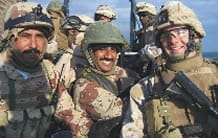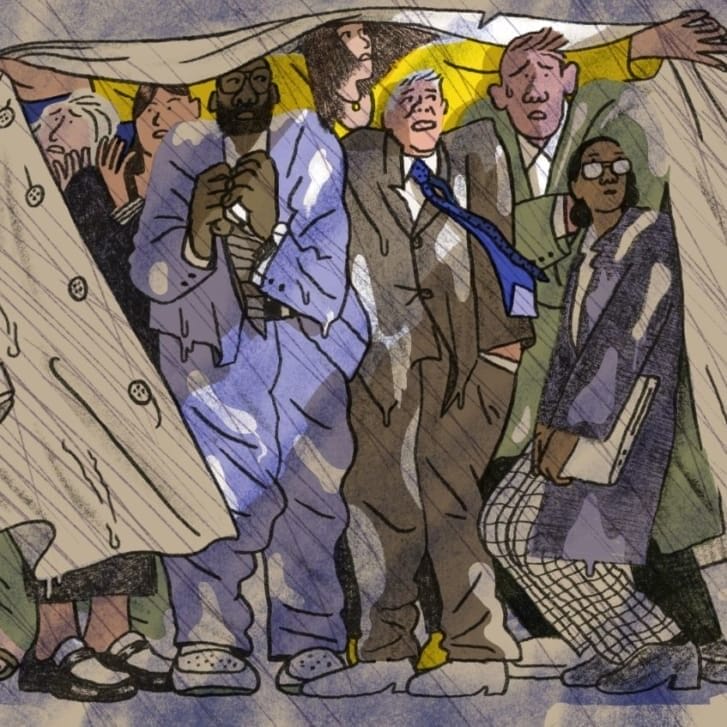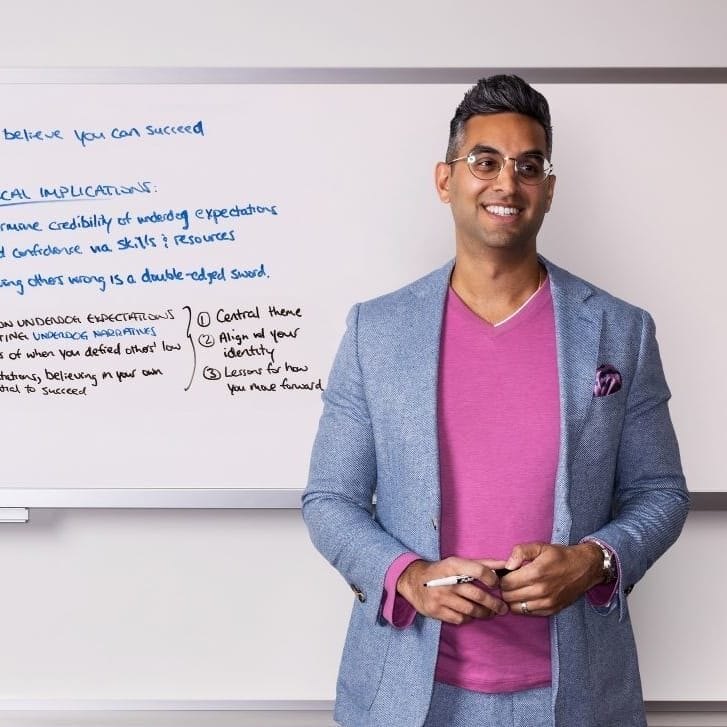Life, liberty and the pursuit of happiness sound nice. And they are. These rights, however, would not be possible without the contributions and sacrifices of generations of men and women who served their country, and, in so doing, transformed America’s aspirations into real achievements.
From my experience as a U.S. Marine, serving on the front lines of Iraq, I can tell you without reservation that the gains from giving back are certainly worth the cost and commitment required. That’s why I encourage all citizens to capitalize on their opportunity yes, opportunity to engage in public service.
My experience began soon after I graduated from Wharton’s undergraduate program. I immediately enrolled in a Ph.D. program at the University of Chicago’s Booth School of Business. After two years of learning about efficient market theory, though, I decided it was time to put the leadership skills and knowledge I gained at Wharton and Booth to the test: I went on a “sabbatical” from my graduate program to serve as a U.S Marine from 2004 to 2008.
In 2006, as a Marine lieutenant, I was assigned to a Military Transition Team operating in Haditha, Iraq. In my new role, I was no longer struggling to write a dissertation. I was fighting for another nation’s independence. As an embedded adviser to the Iraqi military, I stood at the core of the U.S. military strategy in Iraq. I was the proverbial “boot on the ground.”
The embedded military adviser’s role is to advise, mentor and support a foreign nation’s military so that the foreign force can successfully execute military operations on its own. Missions of this nature are typically undertaken by U.S. Special Forces. But in the Iraq conflict, the demand for military advisers has outstripped our traditional capability to supply such services. That’s why I ended up there and why I soon found myself applying my knowledge of advanced financial models to such challenges as teaching Iraqi soldiers about battle tactics and finding the best way to catch fish in the Euphrates River.
I quickly realized had a lot to learn.
Instead of getting my daily cup of coffee from the barista at Au Bon Pain, I was chowing down on hubbis (Iraqi flatbread) and MREs (meals ready-to-eat). Instead of spending hours in front of a Bloomberg terminal, I was busy figuring out the safest routes for military convoys. I was 10,000 miles away from my family and friends in Chicago. It often felt like a million.
Given the seemingly impossible mission of transforming the Iraqi Army into an effective fighting force, I realized that some of those lessons from Wharton really do apply in the real world even, and perhaps especially, during times of war. For one, I saw very clearly that good leadership truly is the key to all success. Additionally, negotiation is not just at the heart of financial mergers, but also instrumental in bridging cultural divides. And making an excellent PowerPoint presentation can work wonders for explaining your strategy, no matter where you are.
But today, as I sit here in the friendly confines of my Chicago apartment reflecting on my experiences in Iraq, I find that I gleaned quite a few lessons from the Iraqis, as well. I learned that when cultural differences seem insurmountable, listening can go a long way toward reaching common ground. I learned that “money talks” in any language though, after operating as a pay officer in a cash-only economy, I have a newfound appreciation for the complexities, and capabilities, of our digitized financial markets. I learned that, in real-time battle situations, real-life experience trumps even the best book learning.
At the same time, I learned a little preparation pays dividends that far exceed expected value: You can never be over-prepared for a combat mission or a meeting with your investors. Finally, and most importantly, I learned that while the principles of leadership may be taught in a classroom, the real test of an effective leader only arrives when he or she is called upon to do the seemingly impossible.
In short, I find my time in the Marine Corps has taught me things I could have never learned in business school, or even on Wall Street. My mind is sharper, my insights are unique, and I have a deep confidence in and attachment to my country.
Not everyone can be a Marine, but the valuable business and life lessons I gained through the Corps are available to anyone willing to engage in public service. My advice to you?
Be selfish: Serve your country.
Wesley R. Gray, W’02, is the author of EMBEDDED: A Marine Corps Adviser Inside the Iraqi Army


























